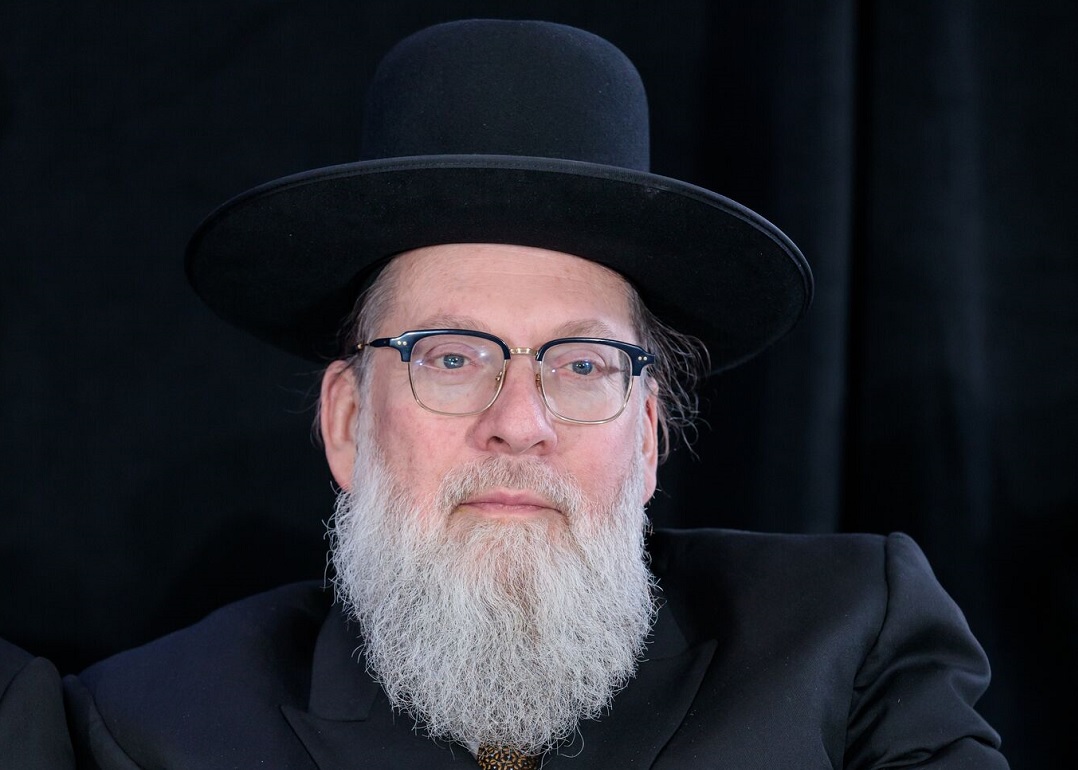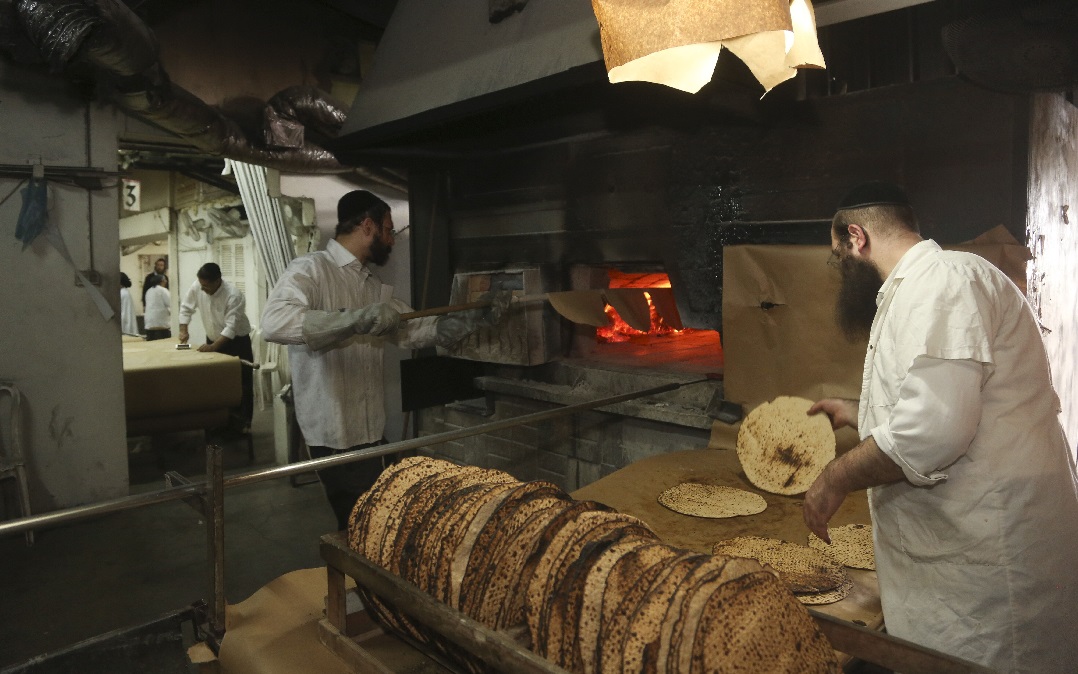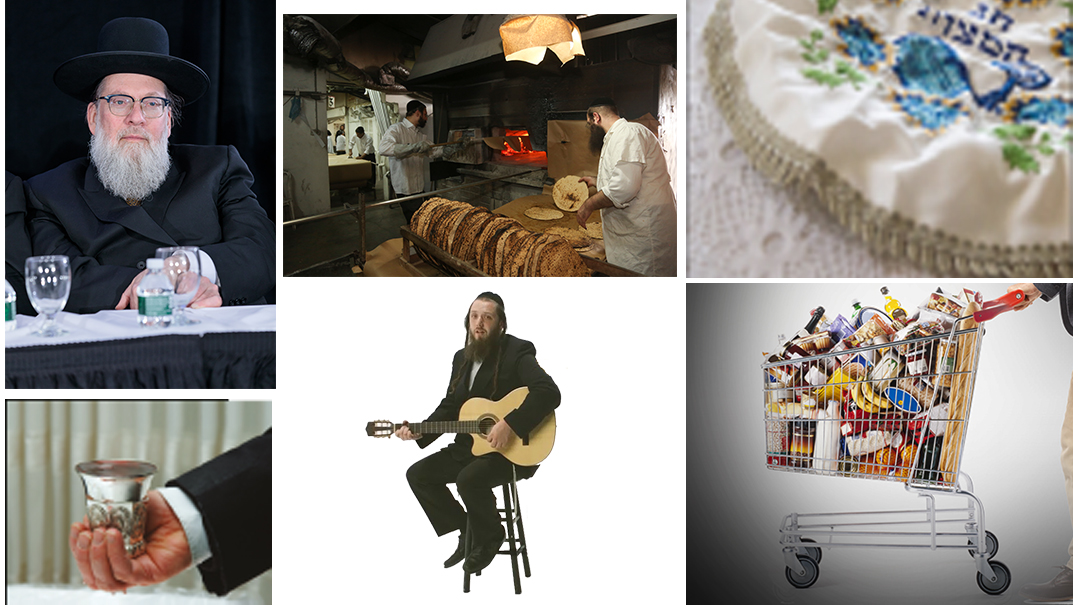A New Halachic Era

“Come up with contingency plans and modify the Pesach preparations to a bare minimum. This Pesach, you’re going to be machmir on pikuach nefesh”

President Trump says the coronavirus pandemic has turned him into a wartime president. The soldiers battling that war are healthcare workers and first responders.
But leading the Torah-observant homefront are the community’s rabbanim. The questions that have poured into the phones and emails of rabbanim, says Rav Moshe Tuvia Lieff, the rav of Agudas Yisroel Bais Binyomin in Flatbush, are unlike any other he recalls in his decades of rabbanus.
So are the psakim. No minyanim, not even on porches or in backyards. No physically taking care of elderly parents. Cleaning for Pesach? Just the bare minimum.
Rav Lieff, formerly a rav in Minneapolis, said that he and other rabbanim have radically changed their lives over the past few weeks. He makes a point of calling each member of his kehillah every few days. He was mesader kedushin at a chasunah that had twenty people, “and that’s including the photographer, caterer and musicians,” wearing a face mask. And they are dealing with a heartbreaking new array of halachic queries.
“This is a very unique time and a difficult challenge for the sandwich generation,” Rav Lieff says. “Many people in the kehillah are taking care of their parents, and at the same time they’re taking care of their children, and in many cases grandchildren. There are so many unique shailos.
“Do I visit my father? Can I be involved in physically caring for them? Is it pikuach nefesh? How many heterim can I rely on with Pesach cleaning? Can I have my married children over? They’ve never made Pesach themselves in their lives. If not, what kind of flavor will the Seder have when my wife and I are sitting there alone?”
For those concerned about ignoring family chumros, Rav Lieff’s psak reframed the question from “what are we going to do about chumras on Pesach?” to “how can we be machmir on pikuach nefesh?”
“Come up with contingency plans,” he advises, “and modify the Pesach preparations to a bare minimum. Sell even chometz gamur or things you would never normally sell. Now you’re going to be machmir on pikuach nefesh.”
Ever since the Be’er Heitev included a promise from the Arizal that “whoever avoids even a speck of chametz will not sin that year,” Yidden have made a point of adding chumra upon chumra to hilchos Pesach.
Never mind that meforshim struggle to locate the source for this Arizal, and Rav Pinchos Koritzer was “angered,” according to Imrei Pinchos, that the Be’er Heitev wrote it was a promise when the Arizal said it was merely an “aid” not to sin. The pious — the Rosh refers to them as “Yisrael kedoshim heim” — would not eat matzah that touched any surface, no matter how clean; avoided a large variety of products, from fruit, peeled vegetables and dairy; and would not rely on utensils even if they were kashered.
That’s not the right approach this year. Rav Lieff is recommending that people use disposable plates and cups and sell if necessary new utensils to a non-Jew for thirty days since keilim mikvaos are closed. He is permitting all medications that don’t have a good taste, a siyum bechorim over the phone if someone can’t finish a masechta on his own, and recommending that people sell their chometz by mailing the shtar to the rav and appointing him a shaliach over the phone.
“If anyone is machmir every year not to sell chometz gamur,” he said, “this year he should be machmir to sell chometz gamur.”
Some of the most unique shailos Rav Lieff encounters concern shidduchim and marriage. People have been donating their private yards for dates, and he has been mesader kiddushin at several chasunahs that counted just a bare minyan. He was forced to pasken for a chassan who was not feeling well to push off the wedding.
“These are shailos I’ve certainly not been hearing before,” Rav Lieff said in wonder. “This is a new era.”
He prefers that people get married with just ten people present rather than postpone a wedding. This was the guidance he gave a member of his kehillah who has two daughters getting married back to back.
“The tachlis of a wedding is to be married,” he noted. “Tell the Ribbono shel Olam, ‘This should be an event with hundreds of people, with flowers, crowds and the entire family. But I’m doing what I’m supposed to be doing. Hashem, pay me back with good things in my life.’”
The concept of being forced to daven at home alone is one that is particularly distressing to people, Rav Lieff notes. Some people have tried getting around it by making porch minyanim. The rav says he no longer allows that.
“The guidelines have to be black and white,” he says. “It has to be distancing of not just six feet but the sort of distancing that ensures you really cannot connect with anybody else in any way. Also, consider the chillul Hashem. The outside community looks at all of us as one. If we’re going to be lax and lackadaisical in the guidelines, it’s a terrible chillul Hashem. Besides for the fact that it’s dangerous.”
In Rav Lieff’s shul, he instituted set davening times so the congregants can maintain a semblance of tefillah b’tzibbur – though they’re all davening in their own homes. All the shiurim continue as usual, albeit by phone. Rav Lieff makes a point of calling people by name during the shiur, even though they cannot respond.
The bizarre upturning of communal life was only brought on by a calamity, but it is has brought out a certain transformation in people, Rav Lieff observed.
He was especially moved when a mispallel walked into his office, put down $5,000 and said this was for those suffering from the effects of the weakened economy. But more than anything else, Rav Lieff has observed a tremendous growth in tefillah.
“People don’t take tefillah for granted anymore,” he says. “Davening in our kehillah started – albeit remotely -- at 9 this past Shabbos. Many people told me that they finished at 12, 12:30. It’s also a time that if you have children at home, daven with them. Go through the pesukei d’zimra with them as the Shulchan Aruch says, as if you’re counting diamonds. When you daven loudly and there are no distractions, it’s unbelievable how you connect with Hashem.”
Rav Lieff told his kehillah that the two holy brothers, Rav Elimelech of Lizhensk and Rav Zisha of Anipoli, were once in prison together during their journeys. Rav Elimelech wanted to daven but Rav Zisha pointed to a pail of refuse in the corner that precluded him from tefillah.
The brothers began to dance. “The same Eibishter that commanded us to daven b’tzibbur is now commanding us not to daven,” they said.
“And,” Rav Lieff added, “the same way that you looked forward to davening in shul you should now look forward to being mekayeim the mitzvah of saving lives and daven at home. The Eibishter is now saying, ‘Yankel must daven at home.’”
Rav Lieff is already preparing his shiur for when the virus ends and everyone returns to shul.
“We’re going to be better people because of this,” he predicted. “I don’t want to hear any talking bein gavra l’gavra. I don’t want to see anybody looking even remotely at his phone. You have to earn this.”
— Yochonon Donn
Oops! We could not locate your form.











